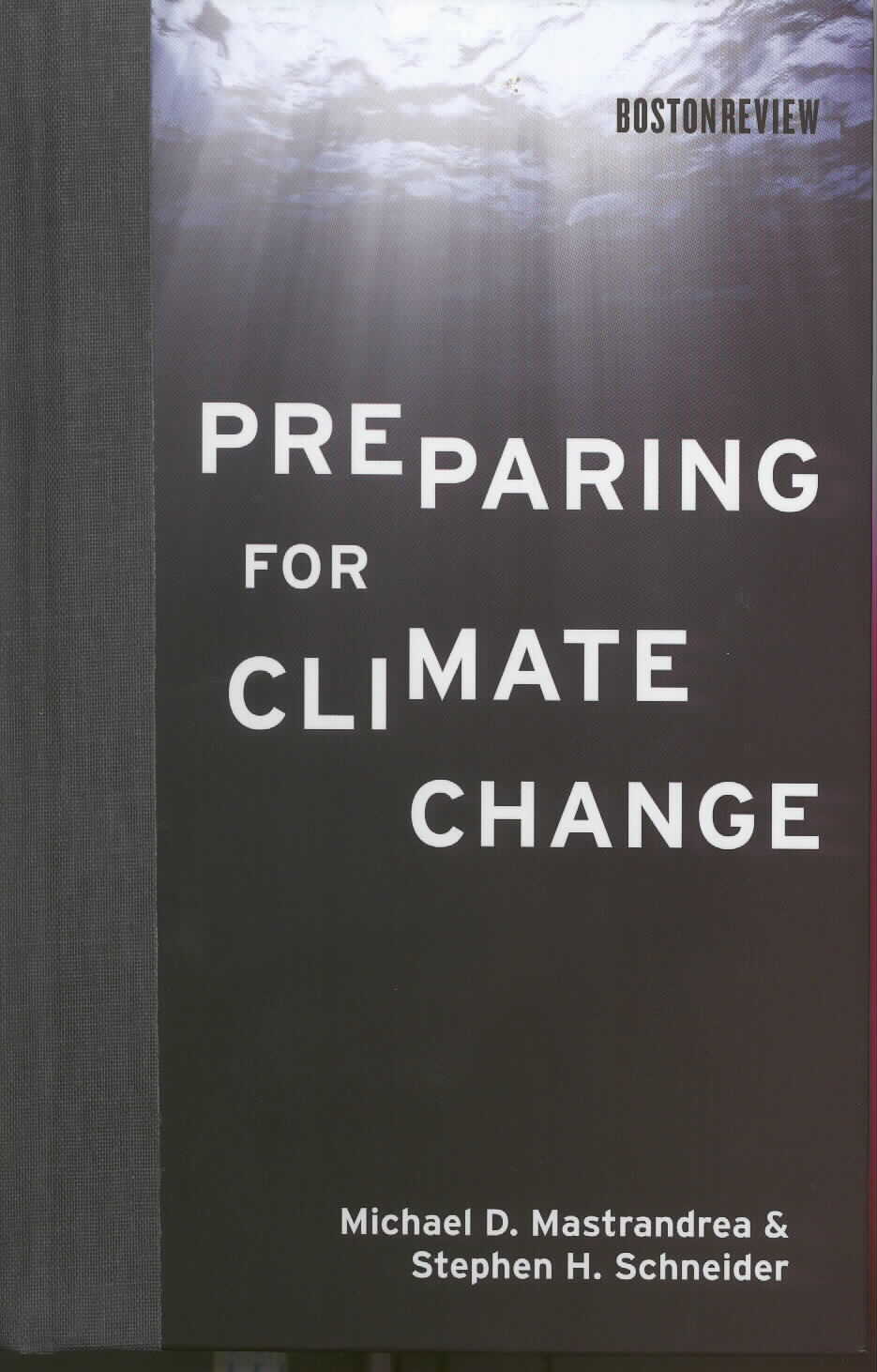 |
Click
on a Topic Below |
| Home» Preparing for Climate Change |
|
|
ORDER
NOW! |
|
| Preparing for Climate Change |
Authors: Michael D. Mastrandrea and Stephen H. Schneider
Mastrandrea and Schneider’s assessment is that smart adaptation will require a series of local and regional projects coupling climate impact assessment with on-the-ground decision making. Many of these efforts are needed in the countries least able to pay for them and least responsible for the problem itself. Ensuring that we address the needs of these countries, while we work globally to reduce emissions over the long term, is our best chance to avert global disaster and to reduce the unfair burdens that are likely to accompany climate change. About the AuthorsMichael D. Mastrandrea is an Assistant Consulting Professor at the Stanford University Woods Institute for the Environment. His work has been published in Science Magazine and Proceedings of the National Academy of Sciences, and he is co-author of chapters on key vulnerabilities and climate risks and on long-term mitigation strategies for the 2007 IPCC Fourth Assessment Report. He also serves on the Editorial Board for the journal Climatic Change and is co-editor of the book Climate Change Science and Policy. A Surprising Gem!“This is a small (5" x 8") book, 94 pages. It is very easily read. This format strengthens the power of one message, "a call for bottom up / top-down vulnerability assessment" of responses to climate change. Why is this important? It asks for reasoned and science-based responses and actions to mitigate the threats of climate change at all levels, that is, personal and local community action, as well as national/regional "top down" actions. In short: no place to hide. The authors are Michael Mastrandrea, Deputy Science Director of the IPCC Climate Change Working Group II and the late Stephen H. Schneider, Stanford University Professor and Coordinating Lead Author for the IPCC Fourth Assessment Report (2007). Having this little missive in pocket allows on to read, carry around and pass on to friends the resounding words of two renown scientists who know of what they speak, a call to action to prepare for all our futures.” -- Anonymous Reader
|
 Global momentum is building to reduce greenhouse gas emissions. However, the Earth's temperatures will continue to rise for decades. And evidence shows that climbing temperatures and the host of other impacts of climate change are already having serious consequences for vulnerable people and regions through shifting patterns of droughts and other extreme weather events, melting glaciers, and rising seas. In this book, climate experts Michael Mastrandrea and Stephen Schneider argue that we need to start adapting to climate change, now, in addition to reducing greenhouse gas emissions. They write that these adaptation efforts should focus primarily on identifying the places and people most at risk and taking anticipatory action—from developing drought-resistant crops to building sea walls to conservation planning to accommodate species migration. painful way to cope with climate impacts that cannot be avoided by emissions reductions. And they are highly critical of "geoengineering" schemes that are designed to cool the planet by such methods as injecting iron into oceans or aerosols into the stratosphere.
Global momentum is building to reduce greenhouse gas emissions. However, the Earth's temperatures will continue to rise for decades. And evidence shows that climbing temperatures and the host of other impacts of climate change are already having serious consequences for vulnerable people and regions through shifting patterns of droughts and other extreme weather events, melting glaciers, and rising seas. In this book, climate experts Michael Mastrandrea and Stephen Schneider argue that we need to start adapting to climate change, now, in addition to reducing greenhouse gas emissions. They write that these adaptation efforts should focus primarily on identifying the places and people most at risk and taking anticipatory action—from developing drought-resistant crops to building sea walls to conservation planning to accommodate species migration. painful way to cope with climate impacts that cannot be avoided by emissions reductions. And they are highly critical of "geoengineering" schemes that are designed to cool the planet by such methods as injecting iron into oceans or aerosols into the stratosphere.